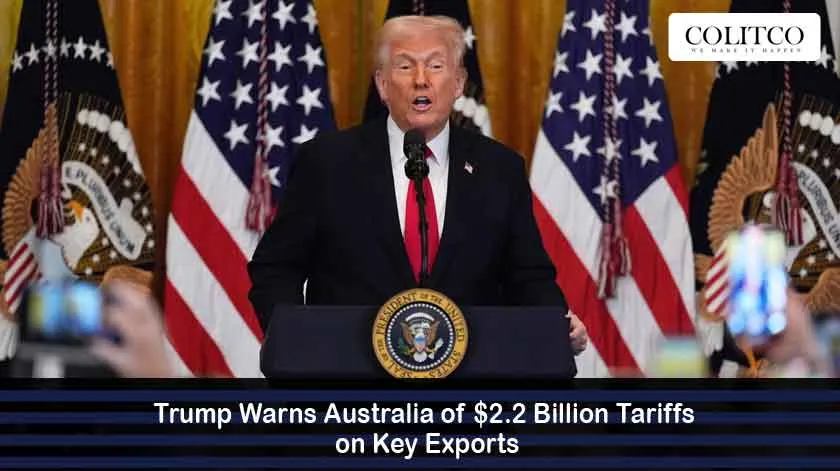Trump recently threatened Aussies with tariffs worth $2.2 billion, specifically targeting pharmaceutical exports to the United States. He stated that medicines manufactured in Australia would face 100% duties unless production was shifted to U.S. soil.
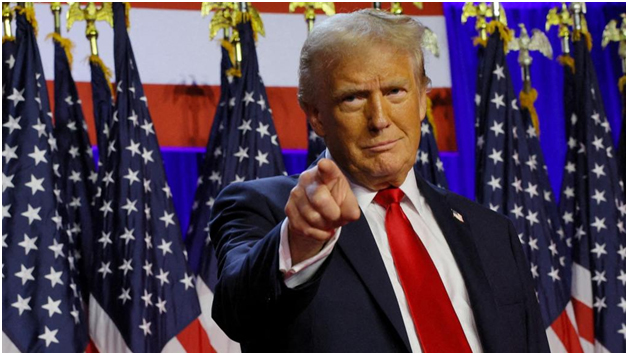
Trump recently threatened Aussies with tariffs worth $2.2 billion
The tariff proposal centred on pharmaceutical goods, which account for one of Australia’s strongest export industries. By warning exporters to relocate their operations, Trump underlined his administration’s approach of pushing foreign producers into American manufacturing hubs.
Australian pharmaceutical companies have developed extensive trade ties with the United States, and this proposal directly affects the industry. The warning has also raised broader questions about how deeply Australia’s health export market may be disrupted.
Watch the full video report below:
Expansion of Tariff Threats Beyond Medicines
Trump recently threatened Aussies with tariffs worth $2.2 billion, but his tariff agenda extended further. Alongside pharmaceuticals, new duties were proposed for sectors such as kitchen cabinets, upholstered furniture, and heavy trucks.
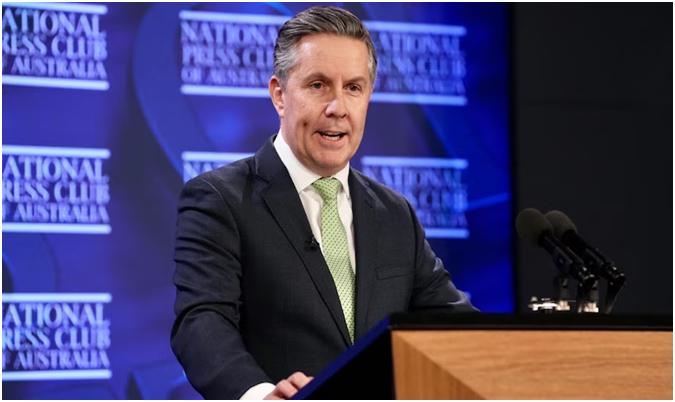
The duty levels varied depending on product categories. For kitchen cabinets, a 50% rate was flagged. Upholstered furniture was listed at 30%, while heavy trucks were set for a 25% tariff. These measures signal a wide-ranging strategy to encourage manufacturers to shift production bases to the United States.
Australian exporters in these industries now face uncertainty over whether existing supply chains will be able to withstand added costs. The tariff threat suggests that manufacturers unable to establish U.S. production sites may struggle to maintain competitiveness in that market.
Response from the Australian Government
Trump recently threatened Aussies with tariffs worth $2.2 billion, prompting immediate responses from the federal government. Health Minister Mark Butler reaffirmed the importance of the Pharmaceutical Benefits Scheme, stressing that its structure would not be compromised.
Butler assured Australians that the government remained committed to affordable medicines regardless of U.S. trade demands. He stressed that Australia’s health policies would not be dictated by pressure from abroad.
The government, he added, is focused on protecting local industries while keeping the door open for talks. Officials confirmed that trade discussions would be pursued to safeguard the long-standing economic relationship between Australia and the United States.
Industry Concerns and Reassurances
Trump recently threatened Aussies with tariffs worth $2.2 billion, and businesses quickly assessed potential consequences. CSL, one of Australia’s leading biotechnology companies, said that it did not expect a major financial hit.

CSL says its U.S.-based production shields it from much of the potential tariff fallout.
The company explained that much of its production already operates in the United States, offering insulation against tariffs. However, industry associations warned that smaller firms without U.S. facilities could face steep challenges if the duties are enforced.
For these exporters, relocating production may be financially unfeasible. Trade bodies are now pressing the government to provide assurances and explore negotiation channels with Washington.
Political Opposition Calls for Direct Engagement
Trump recently threatened Aussies with tariffs worth $2.2 billion, leading opposition leaders to urge immediate government action. They argued that Prime Minister Anthony Albanese must raise the issue directly in upcoming discussions with Trump.
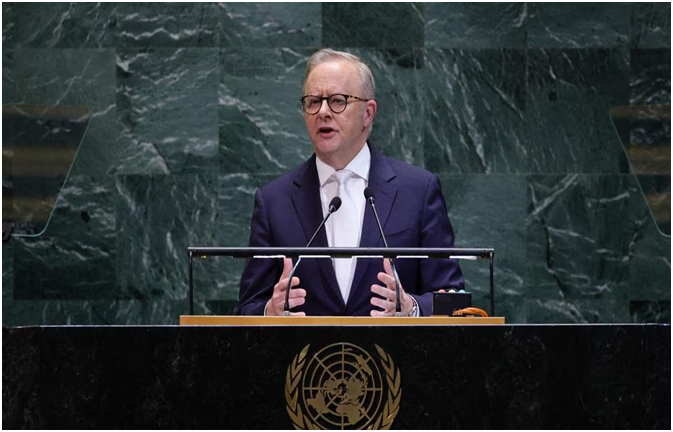
Opposition representatives stressed that the tariffs could endanger thousands of Australian jobs, particularly in pharmaceuticals. They emphasised that trade agreements like the Australia–U.S. Free Trade Agreement must be defended to safeguard economic stability.
Calls for exemptions are now central to the opposition’s stance, with leaders warning that allowing the tariffs to proceed would place Australian exporters at a disadvantage. They also highlighted risks to regional suppliers who depend heavily on U.S. markets.
Broader Trade Policy Context in the United States
Trump recently threatened to impose tariffs worth $2.2 billion within the framework of his wider trade strategy. Earlier in the year, his administration confirmed a 10% baseline tariff on a wide range of imports.
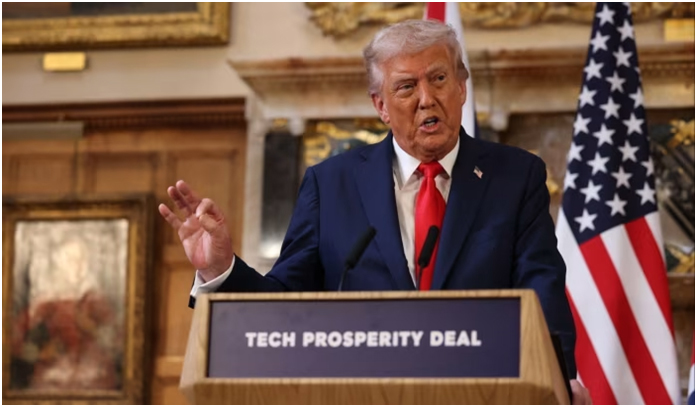
The tariff threat forms part of Donald Trump’s wider “reciprocal tariff” trade strategy.
This baseline duty was described as part of a “reciprocal tariff” approach, designed to equalise perceived trade imbalances. Pharmaceutical imports have been a repeated focus, with earlier announcements suggesting tariffs of up to 250%.
For Australia, the pharmaceutical tariff threat aligns with Trump’s broader drive to reduce dependency on foreign suppliers. The U.S. government has consistently stressed the need for domestic production across industries, especially health-related goods.
Economic and Market Consequences
Trump recently threatened Aussies with tariffs worth $2.2 billion, triggering immediate reactions in Australian markets. The Australian dollar weakened slightly following the announcement, while the ASX index recorded a fall of almost 1%.
Economists warned that the tariffs could affect billions of dollars in trade revenue if they are implemented. Some estimates suggested broader trade war scenarios could cost Australia as much as $27 billion.
Market analysts cautioned that investor confidence may continue to soften if uncertainty persists. Exporters reliant on U.S. markets now face the task of reassessing strategies to remain competitive under a higher tariff regime.
Also Read: Trump Tylenol Autism Claim 2025 Sparks Medical Backlash
Final Thoughts
Trump recently threatened Aussies with tariffs worth $2.2 billion, putting pressure on one of Australia’s key export sectors. His focus on pharmaceuticals highlights both the strength of trade ties with the United States and the risks that come with protectionist policies.
Larger companies with established operations in America may be able to absorb the shock, but smaller exporters could find themselves far more exposed. The Australian government now faces pressure to safeguard industries, maintain market access, and uphold trade agreements.
As the situation develops, attention will turn to whether diplomatic negotiations can avert the tariffs. The outcome of these talks will be decisive for both Australia’s export stability and the trajectory of bilateral trade relations.

